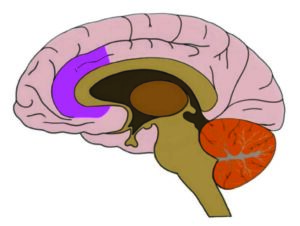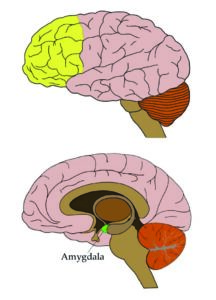People have been reduced to computer screens, covering their faces (what does a mouth even look like?), and the world is on fire (literally and figuratively)… 2020 truly seems like a premise to a TV show – a show that none of us signed up for. With a world so crazy, how could anyone find peace?
Recently, a popular answer has been meditation. This ancient technique has been practiced for centuries to achieve mindfulness, or the mental state of being in the present moment and calmly acknowledging your inner self and feelings. It is touted for helping you become a better you, reducing anxiety, and numerous other benefits. However, as a scientist, this raises several questions on the validity of these claims, such as: which meditative practices, if any, are beneficial? And how does meditation improve health? It is time for a scientific dive into meditation to determine if it is indeed a evidence-based medical miracle or a mythical exaggeration.
What is meditation?
This question is complicated. Contrary to popular belief, meditation isn’t as simple as sitting in a Buddha-like position with repeated patterns of humming.

In fact, it is actually not about a single position at all but rather a learned state of mind. Meditation at its core is about gaining a perspective on yourself by becoming aware of the thoughts and feelings circulating through your brain and learning to be present with them. There are a multitude of ways to meditate, such as mindfulness meditation (focusing on letting go of stress), mantra meditation (focusing on a sound, like humming), attentive meditation (mentally visualizing or physical focusing on something), and numerous others. Most meditation types require sitting, however several involve walking, standing, or yoga-like movements. In addition to having a certain position and an openness to thoughts, most meditative practices have a focus (such as your breath or humming) and need quietness. The length of time is completely up to you. People meditate anywhere from one minute to multiple hours; 20 minutes is recommended. The theory is that by finding your meditative niche and making it part of your daily routine, you will be able to find a peace of mind, acceptance of yourself, increased focus, and benefits to physical health, such as reduced blood pressure.
Are there any scientifically-backed meditation benefits?
The short answer is yes. Emerging studies over the last few years have been analyzing the benefits of meditation. Such benefits include reducing drug dependence, AD-HD, and a reduction in chronic disease aliments (e.g. irritable bowel syndrome and ulcer colitis). Though intriguing as a lot of these studies appear, most health benefits were determined by a few studies or small trials, and need more research to be confirmed. As such, I will focus on a few potential benefits of meditation grounded in science.
Focus: Meditation appears to increase focus. Some studies found that meditation reduced blink attention,

or the ability to focus while distracted by external stimuli. Other studies, however, did not observe a significant difference in attention, but instead found an improvement in emotional well‐being and mindfulness. On the surface, the evidence for meditation to increase one’s focus appears controversial. However, there are variations amongst studies that can account for this variance. For instance, the two studies I cited used different meditation practices. The first study used attentive meditation, whereas the second study used mindfulness meditation. A separate study analyzed the differences between these two meditative practices and observed markedly different improvements; attentive/ focus meditation increases focus, and mindfulness meditation increases positive mood. Given this result, it is not as surprising that different types of meditation impact different regions of the brain. Attentive meditation increases activity in anterior cingulate cortex, a region of the brain that enables executive attention and control, whereas mindfulness meditation impacts different regions (more information below).
Anxiety, depression: Meditation relaxes people and is often used to treat anxiety and depression. A 2014 meta study, or a review paper that summarizes dozens of clinical trials, found that 3,500 individuals showed a general trend in decreased anxiety and depression following varying bouts of mindfulness meditation.

This study, among others, supports the idea that meditative practices of mindfulness can increase positivity and mood. However, the meta analysis did note that meditation varied in how it impacted behavior, such as substance abuse and sleep. Research has shown that mindfulness meditation reduces activity in the amygdala ( part of the brain that deals with emotion) and the prefrontal cortex (the region of the brain focused on decision making). It is suggested that this ‘calmness effect’ helps offset the overactivity often seen in people with anxiety. Overall, the above research supports meditation in improving one’s state of mind. Most studies emphasize that meditation alone cannot substitute all treatments and should be done alongside counseling and psychiatric drugs, especially in severe cases of anxiety and depression.
Insomnia: 60% of adults deal with some form of insomnia every week. Especially during these stressful times, it can be even harder to find the peaceful state of mind necessary for sleep. The National Sleep Foundation supports using meditation to improve sleep and evidence suggests making it a habit to maximum benefit. Some studies have noted that meditation has improved sleep better than current sleep aids, specifically highlighting an increase in sleep quality and a decrease in the time it takes to fall asleep. However, other studies did not see an increase in sleep quality, likely due to differing definitions of ‘better’ sleep. For example, does the study just consider total sleep time, length of sleep bouts (i.e. length of time asleep without waking up), fatigue after sleep, analyzing brain activity or all four? Regardless of contradictions, a meta analysis review paper noted that meditation does increase raw sleep time and reduced the time needed to fall asleep. Altogether, this does indicate that meditation can help with sleep. However, it appears to be most beneficial for those with mild insomnia symptoms while those with chronic and severe insomnia seem to benefit less.
Why do these results vary and what to take away from this?
The results on the benefits of meditation are mixed. This can make it tempting to believe that meditation possibly doesn’t have any benefits. For some claims, such as curing AD-HD, this might be true. However, human trials contain many uncontrollable variables (e.g. genetic differences) that can impact results. So when examining many different human trials at once the results can appear inconclusive. This is especially true with psychology-based studies, such as ones that analyze anxiety and depression. Meditation itself is complicated practice, that is different for everyone making it challenging to determine how deep of a meditative state participants are actually achieving. All these variables indicate why repeated studies are needed to confirm any of the benefits of meditation. The benefits I have emphasized, increasing focus, decreasing anxiety/ depression, and increasing sleep quality, have been repeatedly examined and have some beneficial merits. The type of meditation performed is an important factor in how meditation will benefit you, such as how mindfulness meditation decreases depression. Though meditation is not a medical miracle, it can have some fantastic benefits when performed consistently, such as helping with the insanity that is 2020.
Meditation: Medical Miracle or Mythical Exaggeration?
Peer edited by Keean Braceros and Eliza Thulson